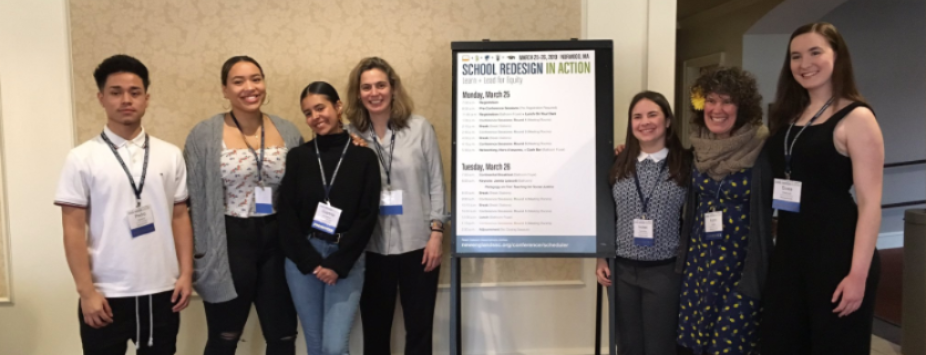by David Ruff

Like many of you, my fall email inbox has been inundated with conference opportunities. Most of these are offered by great organizations, filled with thoughtful presentations, and attended by people I respect and admire. Interestingly, however, when I talk to educators, often I am asked: Is this conference really worth the time and money?
My answer: That depends on your preparation and planned outcomes.
Let’s start by being transparently obvious: Attending a one- to three-day conference as an individual teacher probably is not going to provide you with answers to all your questions. Nor is it likely to provide a perfect answer to any question specific to your school or district. So what is the value in attending?
The value of a well-organized and thoughtful conference is getting each of us to rethink, reimagine, and reexamine solutions to the problems we face based on the lessons learned and the insights gained from other educators working on similar issues.
Knowing that, here are five ways to ensure your next educational conference is worth attending:
- Create a set of ideas you want to explore based on your current reality prior to attending the conference. What learning issues keep coming up for your students? What dilemma has bugged you for years despite ongoing efforts on your part? Which student have you focused on and been unsuccessful with?
- Identify the sessions you want to attend before you arrive—or even register. I recently went to a national conference attended primarily by school board members, state legislators, etc. The high-quality presentations shared strategies for these elected officials to support innovative educational policy and systems change strategies. The sessions were great. However, if you are a teacher looking for ways to rethink instruction in your classroom, you would have been woefully disappointed. Even in conferences that are generally aligned to your needs, there will likely be presentations that are not relevant to you. For example, a presentation by and for high school teachers may not prove useful if you teach at an elementary school. Interrogating the session descriptions for relevance is one of the best ways to ensure a return on your registration fee at any conference.
- Identify who you want to meet. As important as the session content is, equally important is who is presenting work. Will these presenters have an understanding of your circumstances? In the case of school presentations, it is well worth your time to do a quick internet search to better understand the school. In addition, many conferences also list attendees. I often find it helpful to read through attendees and see if there is someone I want to connect with either because I saw them present somewhere else, I’ve heard interesting ideas about their work, or someone I know suggested I meet with them.
- Deeply engage. If I create a schedule prior to attending, I won’t be spending half my time in each session trying to figure out where I am headed next. This will enable me to fully engage in each session I attend. I often find that my thinking is most impacted by the usual ending question and answer sessions. This is a time when I can get the presenter to devote thinking to my specific question or hear an off-the-cuff response to someone else’s question. Remember, a conference is most valuable when it gets us to rethink, reimagine, and reexamine solutions to the problems we are facing based on the lessons learned and the insights gained from other educators working on similar issues.
- Make use of networking opportunities. At almost all conferences, lunches, breaks, and even scheduled networking sessions include all attendees and presenters. Since educators have almost no time to meet new people and network with new schools, I recommend using your next conference to do just that. When going to lunch, sit at a table with people you don’t know. In my experience, the resulting conversations often forge bonds or reveal insights that fundamentally change your practice.
Conferences are a big commitment both for the individuals attending and the schools, districts, or organizations sending them. It is an added burden of time making lesson plans and traveling, but if planned well, the results can help you think through your dilemmas and develop innovative solutions.
Looking for a conference to attend next year? Check out the 2020 School Redesign in Action conference. This year’s theme: Equity in our classrooms, schools, and communities. |